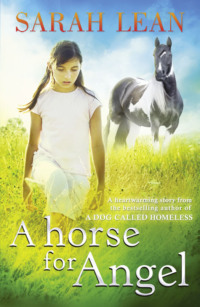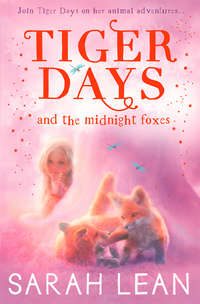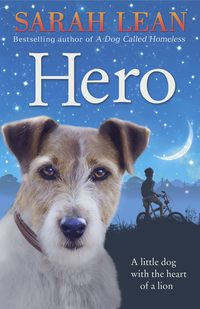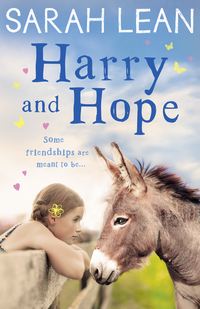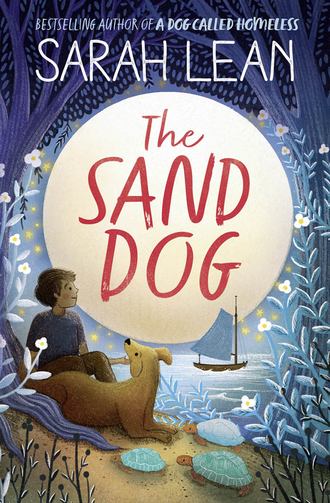
Полная версия
The Sand Dog
‘I’ve taken care of you, and taught you good things, haven’t I?’ Uncle steadied himself and lowered his voice. ‘You have everything you need here.’
‘Yes, Uncle,’ I said, which was what he wanted to hear.
He wrapped a chicken leg in a piece of foil and added it to my bucket. ‘Eat it all – you’re too skinny.’
I wasn’t hungry after everything that Uncle had said, so when I went back to the cove I fed the dog with the food. ‘You’re the one that’s too skinny,’ I told him as he ate everything I gave him. He burped and then lay down on his side, exhausted from wolfing it all down in such a hurry, and he reminded me of Grandfather all over again.
Grandfather had a thousand tales to tell from his days on his fishing boat. Sometimes the stories would overlap or merge, one tale leading to another, while other times the stories would be familiar because he’d told a part of them before. Sometimes it was just because it included me and I’d already stored it in my memory. But the stories were never the same, never fully told, only narrow doorways into one whole story of our lives. The dog wasn’t going to be able to tell me stories that made me feel like I belonged. He wouldn’t know how to ride the storms that made waves as tall and hard as massive walls of stone, or have heard of giant squid that could wrap their tentacles round sailing boats and drag them to the depths, or about huge sea creatures with heads like hammers. I could sit and listen to Grandfather’s stories for hours, my mouth wide open, daring it all to be true.
Without Grandfather, it was as if my history and the story I belonged in was missing the last chapter, the part when you finally get to hear how the monster is slayed.
Missing someone hurts all over. It’s much worse than a jellyfish sting.
I looked at the dog. Maybe he’d like to hear about Grandfather instead.
‘Once Grandfather saw the seabed split open and spit out fire from the centre of the Earth,’ I told the dog.
He raised his head, his ears twitching when I threw my arms up and wide as if they were the Earth breaking open, shooting out fire with my hands, exploding, bubbling, up and up. The dog blinked.
‘You ever seen such a thing?’
The dog’s eyebrows twitched, and I nodded. ‘The water boiled and the fish in Grandfather’s nets were cooked before he hauled them in or even had a chance to get them to Uncle’s kitchen, and he ate them, steaming, straight from the sea.’
The dog burped again and it made me laugh.
‘It’s true, dog. The boiling water cooked some seaweed too.’
I told him how the sea was full of things he couldn’t imagine, that the sea was a story all by itself, the greatest story I had ever heard. ‘Come on, dog, I’m going to show you something.’
I got up and went to the edge of the water with the bucket. It wasn’t really the edge because the sea didn’t have an edge as such because the sand was sometimes under the water and sometimes not. But, once upon a time, somebody had drawn a line on a map and said ‘This is the edge of our country’.
A dark red piece of seaweed rolled to my feet, strands like an octopus’s legs, waving with the rise and fall of the waves. I filled the tin bucket with seawater, poured in handfuls of sand, placed some small shells and waited for it all to settle. The dog looked in the bucket, sniffing at the wet, shiny weed I was holding, and then looked up at me, as if he was waiting for me to tell him something that might make sense of what we were looking at.
‘This is what I wanted to show you,’ I said. ‘Grandfather says we have roots, like plants do, kind of like an invisible bit of us that is attached to where we belong, and part of us will always be joined there even when we leave.’
But there were plants in the sea that didn’t have roots and drifted on the tides with nothing to hang on to. Grandfather had said that plants in the sea could only take root in the seabed where the water was shallow enough that the sunlight could still reach them.
The water in the bucket cleared and I pushed the end of the weed into the sand, finding a rock to hold it down on the bottom.
‘The seaweed has to live here for a bit,’ I said.
The strands unfurled, reaching towards the surface, and the dog and I stared into the mini aquarium I’d made. I used to find things to show Grandfather in the tin bucket. Back then, while I was diving in the water and he watched, he was the only one who really understood what it meant.
For the first time I touched the dog, stroking his head and neck, resting my hand on his shoulders. He seemed to like it, his eyes blinking slowly, as if he was feeling sleepy, or maybe remembering someone else’s hand that made him feel nice.
‘Even if we aren’t in the place we think of as our home, we still all know where we belong,’ I told him.
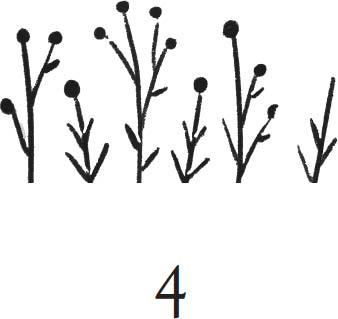
IN THE EARLY DAYS of being on the fishing boat with Grandfather he’d taught me to read the sea – if there was a flock of seabirds, a warm current and a kind of bubbling in the water, it meant a huge shoal of fish was feeding near the surface. Then Grandfather could throw out his nets and haul in a good catch. The lie of the rock, the deep shadows underneath and the way the fish emptied the space before gradually coming back (they have short memories and would forget quickly why they weren’t feeding there), meant something else – it meant that in the dark, a moray eel with poisonous teeth would be waiting. From a distance you could poke under the rock with a long stick until the eel showed itself. Then you would know exactly what area to avoid to protect yourself.
I watched the sea to find the story I needed to hear. I wanted there to be a third sign that would tell me more about Grandfather coming home. But deep inside me I also had a feeling there was something else lurking – something lying, waiting in the dark, just like the moray eel under a rock. I needed to know what it was.
It was hot and sticky that night, the sky moody and heavy. I went to the restaurant kitchen while Uncle was very busy to ask him again if he knew anything about Grandfather’s return.
‘Can’t you see I’m busy?’ Uncle yelled, but this time I stood my ground and didn’t leave.
Maria stepped in again. ‘Hold that,’ she said, handing me the ladle from the mussel soup she’d been dishing into bowls. She pulled at Uncle’s arm to get him to turn round. ‘Azi needs an answer.’
The fired oven roared; plates ricocheted on tiled surfaces; glasses jangled on trays. Uncle told Maria that the people at table number five were waiting for their order, although we all knew he couldn’t see from there. Hot plates whizzed past my ears, waiters and waitresses twirled around me and each other to get the orders out quickly, and to bring back dirty plates, as Uncle yelled at them to get a move on. I waited for an answer.
‘Uncle, you know and I know that Grandfather is coming back,’ I said. In the dizzy tempest of the sizzling kitchen Uncle’s arm touched a boiling-hot pan and he jumped away but I carried on. ‘I only want to know when.’
‘He’s a drunk old fool and he’s not coming back!’ Uncle yelled. ‘Not ever.’
Stunned, I dropped the metal ladle and it hit the floor, clang-clanging as it bounced. All of the movement and noise of the kitchen stopped, except for the fiery breath of the oven.
‘Now get back to work,’ Uncle said uncomfortably, and the bustle erupted again.
Maria swooped over, picked up the ladle and led me out to the stairs to the flat. ‘Take no notice of Uncle. It’s one of the busiest days ever and we’re a bit pushed, that’s all,’ she said. ‘He thinks the world of you, Azi.’
I wasn’t going to ask Uncle about Grandfather again. Now that Uncle had exploded and told me what he thought, it reminded me that I’d also been hiding my deepest secret in the dark. It was my fault that Grandfather had left.
The next day, when I went to the quay, I saw that the dog was following a little way behind me, head down, trotting slowly with stiff old legs. He lay in the shadow under a bench with his head on his paws but didn’t close his eyes while all the passengers got off the ferries.
When everyone had gone to find B&Bs, shops, beaches and restaurants, all that was left was me, the dog and a small dark-red booklet that had been dropped on the quayside. I went over and picked it up. It was a British passport, and inside was a photograph of a girl called Beth Saunders who had been born in London.
Could this be the third sign from the sea? The girl that the passport belonged to was from exactly the same place that Uncle had said that Grandfather had gone – London. What could it mean? And then I knew what I had to do. I had to go and get him. I had to go to where he was staying and bring him back.
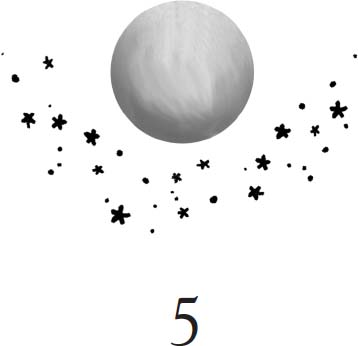
‘THAT’S TWICE THIS WEEK you’ve been in here, Azi,’ Mrs Halimeda said, irritated again on Thursday, looking at me like she always did, as if I smelled of rotting fish. ‘Yes, I’ve seen Uncle’s menu, and, no, I’ve still nothing for you.’ She looked over my shoulder to see who was next.
‘Can I have a passport?’ I said.
She squinted and took ages to reply. ‘What do you need a passport for?’
I knew not to tell Mrs Halimeda anything she could gossip about, so I mumbled something about a possible school trip in the future.
She frowned. ‘You need a form.’ She swivelled her chair to look in the shallow shelves behind her, selected a piece of paper, swivelled back and stared at me hard, narrowing her eyes. ‘You’ll have to give it to Uncle to fill out and sign.’
I assured her I would do that. ‘Also, I found a passport.’ I held up the one I’d found at the quay and she told me to take it to the lost-property office instead.
‘Let that boy bother someone else for a change,’ I heard her mutter to the next customer. It stung but I just kept thinking of Grandfather, of belonging with him again.
The dog was sitting outside the post office and watched with interest as I tucked the passport form inside my shorts and under my T-shirt.
‘I’ve got to be with Grandfather, nobody else knows me like he does,’ I said to him.
I didn’t go to the lost-property office, though. I thought I might hang on to the passport in case it helped me to answer any questions on the form.
As I was going along the road I heard someone shout, ‘Oi! Aqua boy!’
I turned to see Chris coming up the street with Dimi.
They came and stood by me. Chris was carrying his basketball. I was expecting them to ask me to play again, but they didn’t this time.
‘What are you doing?’ Chris asked, bouncing his ball.
Dimi rolled his eyes, obviously knowing what my answer would be.
Grandfather and I had both liked it when nobody was there at the cove with us, and there was nothing but the sand and the sea. It had been a long time since anybody had been there with me.
‘Do you want to see a turtle nest?’ I said.
Chris said no first of all, but Dimi nudged him and said, ‘Yeah, we might.’
‘Show us,’ Chris said.
We roamed along the shoreline where tourists speckled the sand with sunhats and towels, sunbeds and umbrellas, some paddling in the sea, their voices babbling in the distance. I told Chris and Dimi they wouldn’t be able to see any turtles yet but I could show them the nest and we could keep watch over the summer. But all they wanted to do was push and shove, kicking at the sand, slamming the ball at each other’s back. I saw the dog nearby, walking along stiffly, his head down.
‘The nest is in the cove over the other side of the rocks,’ I said, pointing in the direction of where the turtle had been. ‘I’ve put a fence round it so nobody touches it. By the end of August the eggs will hatch.’
Chris and Dimi looked over to where I pointed but they were not interested any more and just ran off in the opposite direction when they saw some of the other boys over by the jet-ski school, laughing and shouting back at me, ‘Forget it, turtle boy.’
I sighed. Who needed them anyway? The dog came over and sat down beside me at the cove. I didn’t know why he kept following me around.
‘You still lost your owner?’ I said. ‘Or maybe you want to come swimming with me instead.’
Grandfather was never fearful about me in the water so I had never felt like I should be afraid, not even of the deep-sea monsters that he’d told tall tales about. All the stories of the battles between sea monsters and men were won in the end.
‘What’s out there?’ I’d said, looking out to where the sea seemed endless.
‘Nothing you need to be afraid of,’ he’d say. ‘There are no monsters that we can’t overcome.’
As I thought about his words I waded out until the soft, cool water became my skin. It felt as if I disappeared when I dived under the surface; everything became a silent world of blue, including me. When I came up again the dog had waded into the sea after me. I showed the dog how not to be afraid of the water, staying near him, watching him, putting a hand under his belly when his feet left the ground. He was a natural. He made long doggy-paddle strokes, his nose up high, his body level in the water, graceful and calm, his stiffness all eased out. He seemed to like it too. As the dog circled me, I floated on my back with my arms out, held up by the water like driftwood, going wherever the sea took me. Before long, it pushed me back to the same shore.
The girl’s passport wasn’t much help in filling out the form. I wrote my name, address at Uncle’s (I started to write Grandfather’s but Mrs Halimeda would have something to say about that), and date of birth. I wrote in pencil first, trying to make my letters a bit slanted but neat, like an adult, before going over it slowly with a pen. Some of the questions were long and needed boxes ticking. At the end, there was a list of things I needed to send with it once it was signed, including a birth certificate and two photos.
People had told me for as long as I could remember that I didn’t belong on the island but when I had asked Grandfather why he had just teased me that it was because I had come from the sea. You were born in the breaking waves, Azi, like a mermaid child. He’d put his hand round the back of my head, pull me towards him and push the hair away to look behind my ears for gills. He’d beckon me to put my leg up on his knee, slipping off my flip-flop and rubbing the dust away.
‘What are you looking for, Grandfather?’ I’d say.
‘Roots!’ he would chuckle, and then laugh and laugh, feeling between my toes, then holding all my toes in his hand and peering at the bottom of my foot.
‘Have I got roots, Grandfather?’
‘Yes, Azi, yes!’ he’d say, and I would crook up my knee and look at the dirt on the bottom, saying I couldn’t see any.
‘Roots are not on the sole, they’re in your soul,’ he’d tell me. He took the harsh words said by other people and made them vanish like salt dissolved in the sea because of what he thought of me.
That night, I was up in the flat while the restaurant was full, bubbling over with tourists, and Uncle seared and sizzled in the kitchen. I practised Uncle’s signature over and over in pencil, rubbing it out if it didn’t look right, trying again and again. All the rubbing made a rough place on the passport form, but eventually I thought it looked good enough.
I went through all the drawers and cupboards, and found the folder with all of our important documents, but there wasn’t a birth certificate for me. Did Grandfather have it?
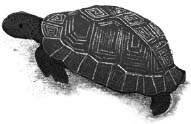
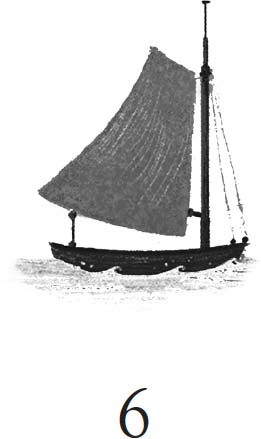
EARLY IN THE MORNING, before the sun had come up and while all the cool shadows were still merged into one, I left the restaurant with my pocket money and the girl’s passport. The photo booth was outside the post office. I adjusted the stool, spinning round and round until it was the right height, straightened my T-shirt and pushed the hair away from my eyes, ready to take a picture. I went to put a coin in but it dropped out of the slot and rolled out of the booth. When I bent down and reached under the curtain for it I felt the dog’s wet nose on my hand.
‘You! What are you doing here?’ I said, but I felt pleased to see him again. His tail wagged and swished the curtain.
I picked up the coin and pushed it into the slot. The first of the four photographs flashed and the time on the screen counted down until it was ready for the next. The dog had come into the booth, as if he was wondering what was going on. He stood up on his hind legs as it flashed a second time. I think it scared him a bit because he jumped up on to my lap. I tried to push him out of the way but the camera flashed again and again.
‘No, dog, no!’ I said as he licked my face. ‘You don’t need a passport!’
The pictures developed and dropped out of the slot. The first one was okay, but the second had the top of the dog’s head at the bottom corner. They would have to do, though. The other two photos were a jumble of my hair and the dog’s hair, and me making funny faces because of the dog’s wet tongue. They were nice; I liked them and they made me smile. I’d keep those two for myself.
‘Lost-property office next,’ I said. ‘You coming, dog?’
The office was closed when we got there so the dog and I watched the fishing boats coming in instead, inspecting the smells and sights of the baskets and trays that the fishermen unloaded. Spider crabs and lobsters reached out to pinch at the dog’s nose and long fur; scales of fish flashed with light in the sun. I asked the dog which fish he might like for his dinner because that was what Grandfather used to ask me.
Eventually the lost-property office opened and I went in.
‘I found a passport,’ I said, sliding it across the counter. ‘It’s from a girl called Beth Saunders, aged twelve.’
‘That belongs to me!’ a voice called out from behind me.
Beth Saunders was about my height, with short brown hair, and she threw herself at the desk, clasping the passport in both hands. ‘I didn’t want to tell my parents I’d lost it. I’ve been coming in every five minutes hoping somebody would hand it in.’
I knew how the girl felt. It was just how I was when I went to the post office again and again. The lost-property man rolled his eyes at her, muttering that now, at last, she might stop bothering him.
Beth asked my name and thanked me for finding her passport but as I went to leave she said, ‘There’s a dog outside, does it belong to you, Azi?’
‘No,’ I said. I wasn’t really interested in talking to tourists who took snapshots of their holiday and collected short-lived souvenirs.
But as I walked away the dog came to my side, following me as usual. Beth ran and caught up with me.
‘Are you sure he’s not yours, because he looks as if he belongs to you.’
I smiled at that and bent down to ruffle the dog’s hair. ‘He’s been following me around for a few days,’ I said. ‘But he isn’t actually mine.’
‘Then he’s lost and needs to go home,’ Beth said.
I looked at the dog. There were lots of strays on the island and I hadn’t really thought about the dog like that. Beth’s words reminded me of Grandfather and how much I missed him and our home. It hurt me inside and I wasn’t expecting it. I needed to feel close to the place I belonged.
‘I have to go,’ I said, running off towards Grandfather’s cottage.
Since yesterday I’d been wondering about a lot of new things. For the last two years the only question I’d had was when was Grandfather coming back. Now Uncle had said he wasn’t, I wanted to see what was going on at the cottage.
Grandfather’s cottage was at the end of a narrow road over the other side of the village from Uncle’s restaurant. It was where I had grown up. I knew that I hadn’t been born in the cottage but that Grandfather had raised me there because my parents had died.
The bench was still outside the cottage by the window where Grandfather used to sit in his cap with his walking stick, indigo tattoo on his bare hairy arm: an anchor coiled with the tentacles of a sea monster. When I was little I used to brush at the hairs of his arm, smoothing them down to see the picture clearly; he’d say, ‘It’s the two sides of being a man of the sea, Azi. The anchor for feeling steady while the battle with the monster rages.’
Two cottages had been pulled down next to Grandfather’s, not long ago, and two were deserted, decaying on the other side. His cottage had walls thick with white paint, which I had always helped him redo every other year. His blue front door was the same bright colour as the scales of paint left on the one I’d found on the sea. After I’d found the passport, I’d started to think about that door. The second sign must be to do with the cottage. Maybe this was where I’d find my birth certificate. That was the last thing that I needed to get a passport, find Grandfather and make him come home.
A small patch of concrete with crazy-shaped cemented stones, painted white round the edges, lay under the sandy dust at the front of the cottage. A pot with dried weeds was by the door and a key still underneath. I hadn’t been in there since Grandfather had left because Uncle had said I wasn’t allowed to, but now I let myself in and the dog came too.
I remembered the days when I’d find Grandfather asleep in his chair in the gloom at the back of the room, head rolled forward over his chest, several days’ growth of silver stubble speckling his slack mouth, his shawl slipped to the floor and an empty glass held loosely in his hands. I looked around at the thinness of the life we’d left behind in the cottage. The walls grim with a crust of paint, the swirls of dust on the tiled floor, the gas bottle and rubber tube to the cooker, the space underneath the wooden staircase where I used to sleep. A bright corner of light poured down the stairs from the window in the bedroom and had been my morning alarm clock.
Конец ознакомительного фрагмента.
Текст предоставлен ООО «ЛитРес».
Прочитайте эту книгу целиком, купив полную легальную версию на ЛитРес.
Безопасно оплатить книгу можно банковской картой Visa, MasterCard, Maestro, со счета мобильного телефона, с платежного терминала, в салоне МТС или Связной, через PayPal, WebMoney, Яндекс.Деньги, QIWI Кошелек, бонусными картами или другим удобным Вам способом.


